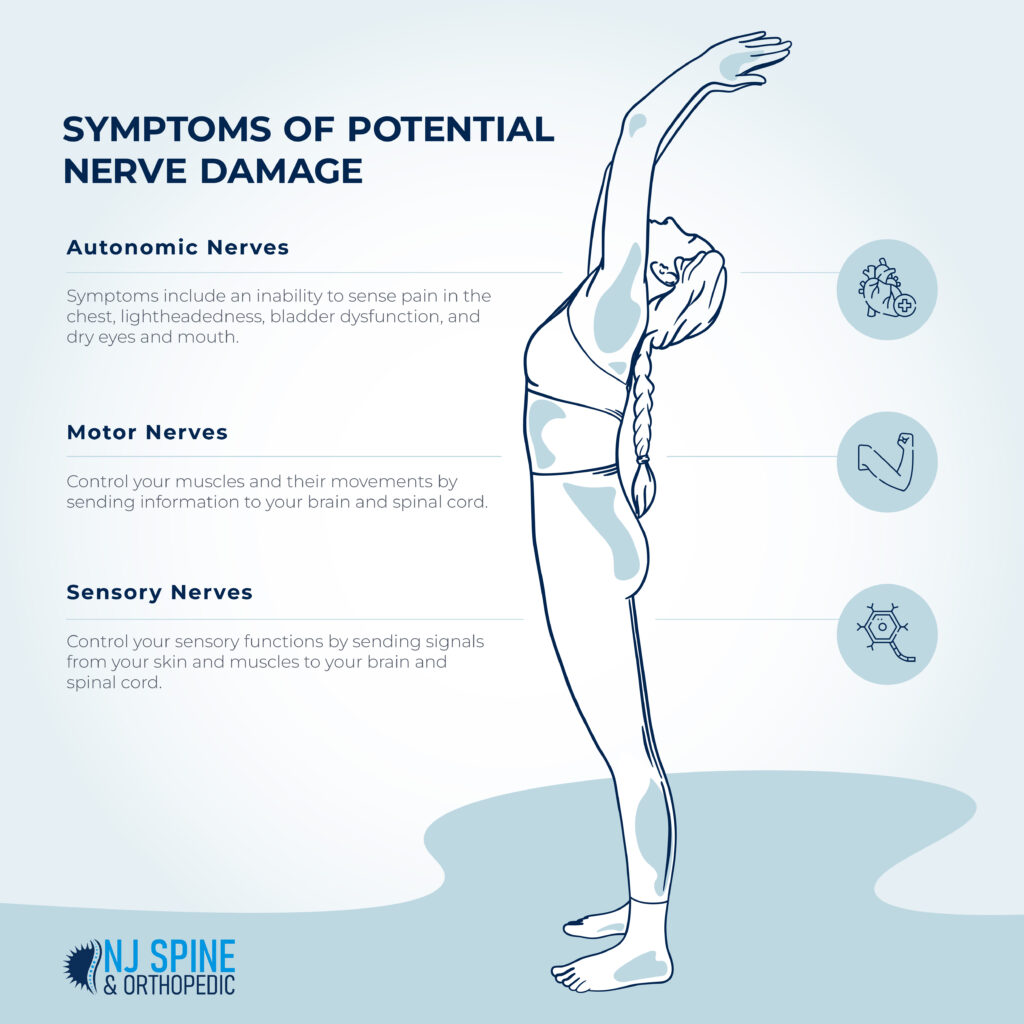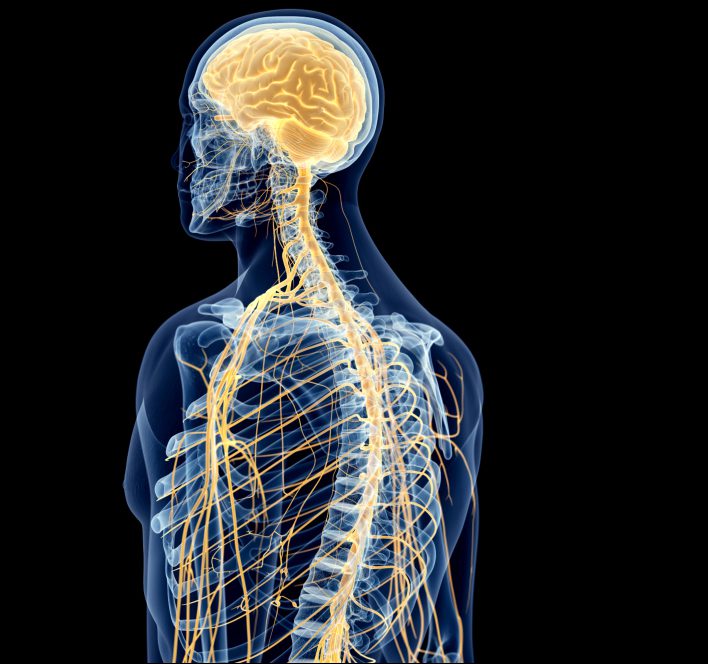Our bodies are made up of many different parts that work together to function as one. When one part is damaged or impaired, it causes pain or, at the very least, discomfort. A significant part of our bodies is our nervous system. A nerve is a white cord-like bundle of fibers surrounded by a sheath that connects the nervous system to the rest of the body. Our nerves send signals to our body so that it functions.
Nerve damage is called Neuropathic pain. A nerve injury can be in the central nervous system, which consists of the brain and spinal cord, or the nerves outside of the brain and spinal cord in the peripheral nervous system.
What Causes Nerve Damage?
Nerve damage often occurs because of an underlying condition, such as diabetes or a sustained injury. Injury to the nerves can occur for any number of reasons, including car accidents, falls, or sports injuries.
Diabetic Neuropathy
Diabetes is the most common cause of nerve damage in the United States. The high levels of glucose in the blood cause nerve damage. Symptoms vary depending on which Neuropathy you might have.
- Peripheral Neuropathy: This is the most common type of diabetic neuropathy. Peripheral Neuropathy first affects the feet and legs, and then eventually the hands and arms. Symptoms of Peripheral Neuropathy are often worse at night.
- Autonomic Neuropathy: The autonomic nervous system controls the heart, bladder, stomach, intestines, sex organs, and eyes. Diabetes can negatively affect these areas.
- Proximal Neuropathy: This type of Neuropathy is also called diabetic amyotrophy. Proximal Neuropathy affects nerves in the thighs, hips, buttocks, or legs. It may also affect the abdomen and chest. Symptoms are often only felt on one side of the body, although symptoms can spread.
- Mononeuropathy (Focal Neuropathy): Mononeuopathy refers to damage that occurs only to a single nerve, usually close to the skin or near the bone. The best-known form of mononeuropathy is carpal tunnel syndrome.
Degenerative Joint or Disc Disease
Degenerative disc disease is the gradual deterioration of the disc between the vertebrae.
Cancer or Other Tumors
Cancer and cancer treatments, such as chemotherapy drugs, can cause nerve damage. As tumors grow, they may place pressure on the surrounding nerves. Sometimes cancer can grow from the nerves themselves.
HIV
Nerve pain caused by HIV often appears in the hands and feet first. Treatments of HIV, such as antiretroviral drugs, can also lead to nerve damage.
Early Signs of Nerve Damage
Our body has three types of nerves that make up our nervous system. Symptoms of nerve damage vary depending on which nerves are being affected and the cause of the damage.
- Autonomic nerves: control involuntary or partially voluntary movements of the body which include blood pressure, temperature regulation, digestion, and the rate of our heart.
- Motor nerves: control your muscles and their movements by sending information to your brain and spinal cord.
- Sensory nerves: control your sensory functions by sending signals from your skin and muscles to your brain and spinal cord.

Autonomic Nerve Damage Symptoms
Symptoms include an inability to sense pain in the chest, lightheadedness, bladder dysfunction, and dry eyes and mouth.
Motor Nerve Damage Symptoms
Symptoms include weakness in hands, muscle atrophy, twitching, and paralysis.
Sensory Nerve Damage Symptoms
Symptoms include skin sensitivity, numbness, tingling or prickling, and a burning feeling.
We Treat Nerve Damage at NJ Spine & Orthopedic
Nerve damage can be uncomfortable and painful. Many of the early symptoms may not be severe, but they are a good warning sign. It’s essential to treat nerve damage quickly to avoid further or permanent damage.
At NJ Spine & Orthopedic, we prioritize our patients by providing them individualized treatments and prioritizing minimally invasive techniques. Our approach to patient care is to provide them with the tools to understand their condition and treatments. Our website has a condition checker and a treatment finder to give our patients the information they need to feel in control. Our medical team is dedicated to achieving the best results for our patients with the least invasive approach. By prioritizing minimally invasive treatments, our patients will have faster recovery times and will be able to return to their lives much sooner.
To get help for your nerve pain, call us at (866) 272-9271 or fill out this form.

